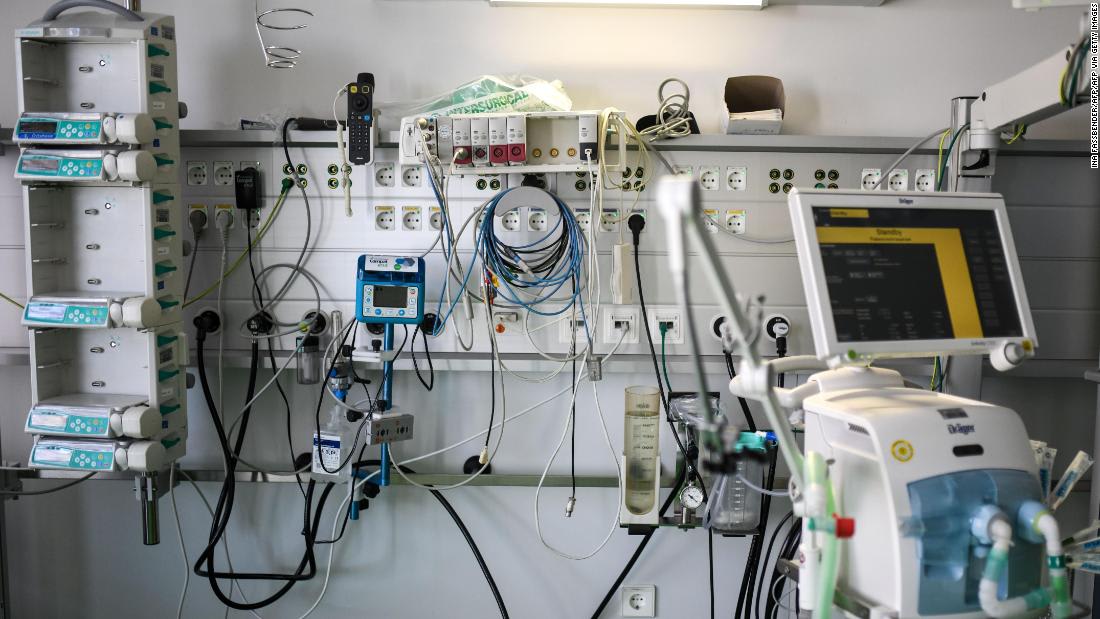UK extends self-isolation period to 10 days
From CNN's Samantha Tapfumaneyi and Schams Elwazer in London
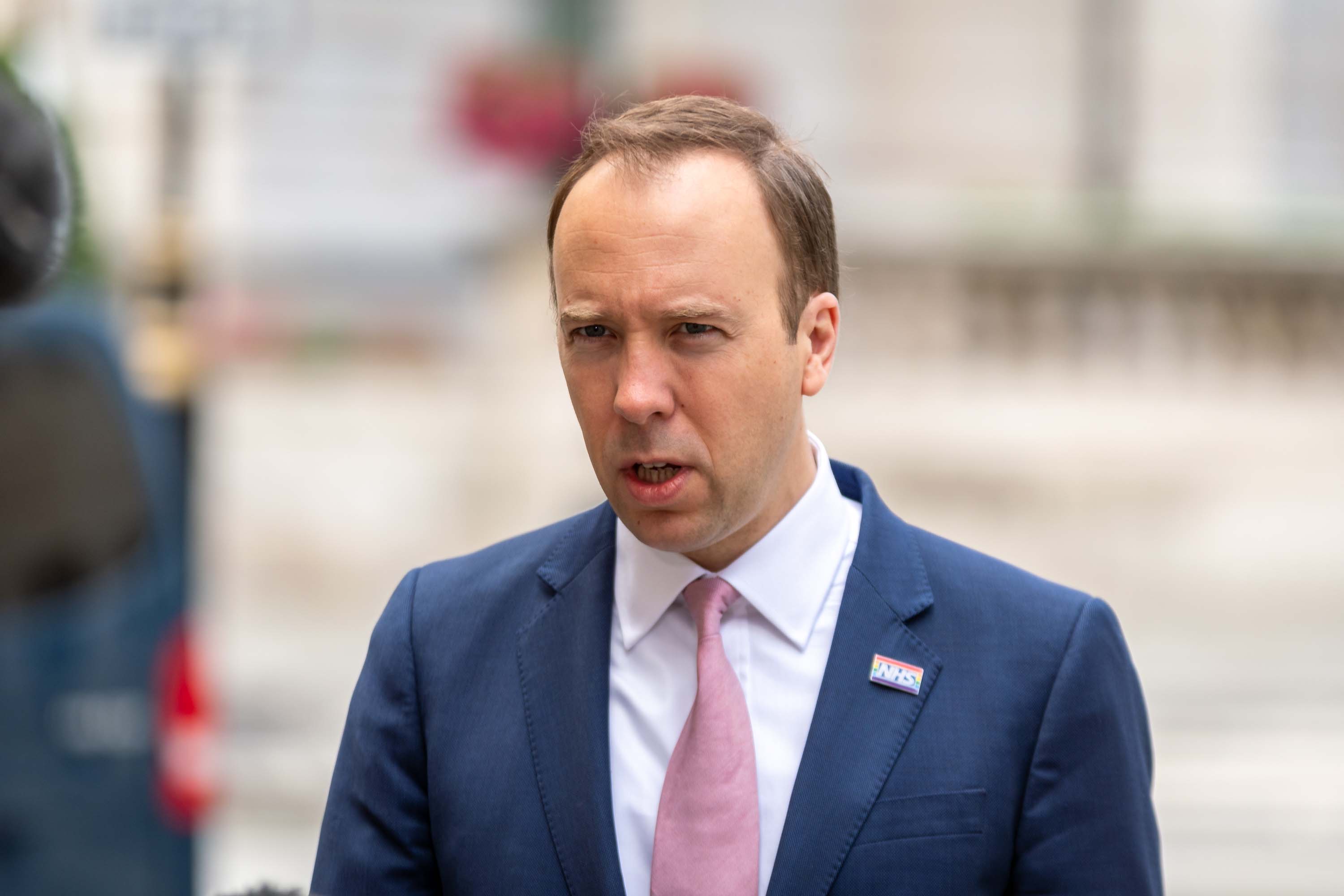 UK Health Secretary Matt Hancock is pictured on July 5 in London. David Nash/Barcroft Media/Getty Images
UK Health Secretary Matt Hancock is pictured on July 5 in London. David Nash/Barcroft Media/Getty ImagesThe UK has increased the self-isolation period for anyone who potentially has the coronavirus to 10 days, according to a statement from the UK Chief Medical Officers Thursday.
In order to reduce the risk to the general population, “it is now the correct balance of risk to extend the self-isolation period from 7 to 10 days for those in the community who have symptoms or a positive test result,” the statement said.
“This will help provide additional protection to others in the community. This is particularly important to protect those who have been shielding and in advance of the autumn and winter when we may see increased community transmission,” the statement said.
Earlier on Thursday, Health Secretary Matt Hancock said he was concerned about the rising infection rates in other countries in Europe, saying: “I think you can see a second wave starting to roll across Europe, and we've got to do everything we can to prevent it from reaching these shores, and to tackle it.”
England has dramatically eased its lockdown measures and allowed the re-opening of gyms, pools, restaurants and pubs. The government has also urged those who can return to the workplace to do so.
Rutgers football players test positive for Covid-19 after attending gathering, state official says
From CNN's Joe Sutton
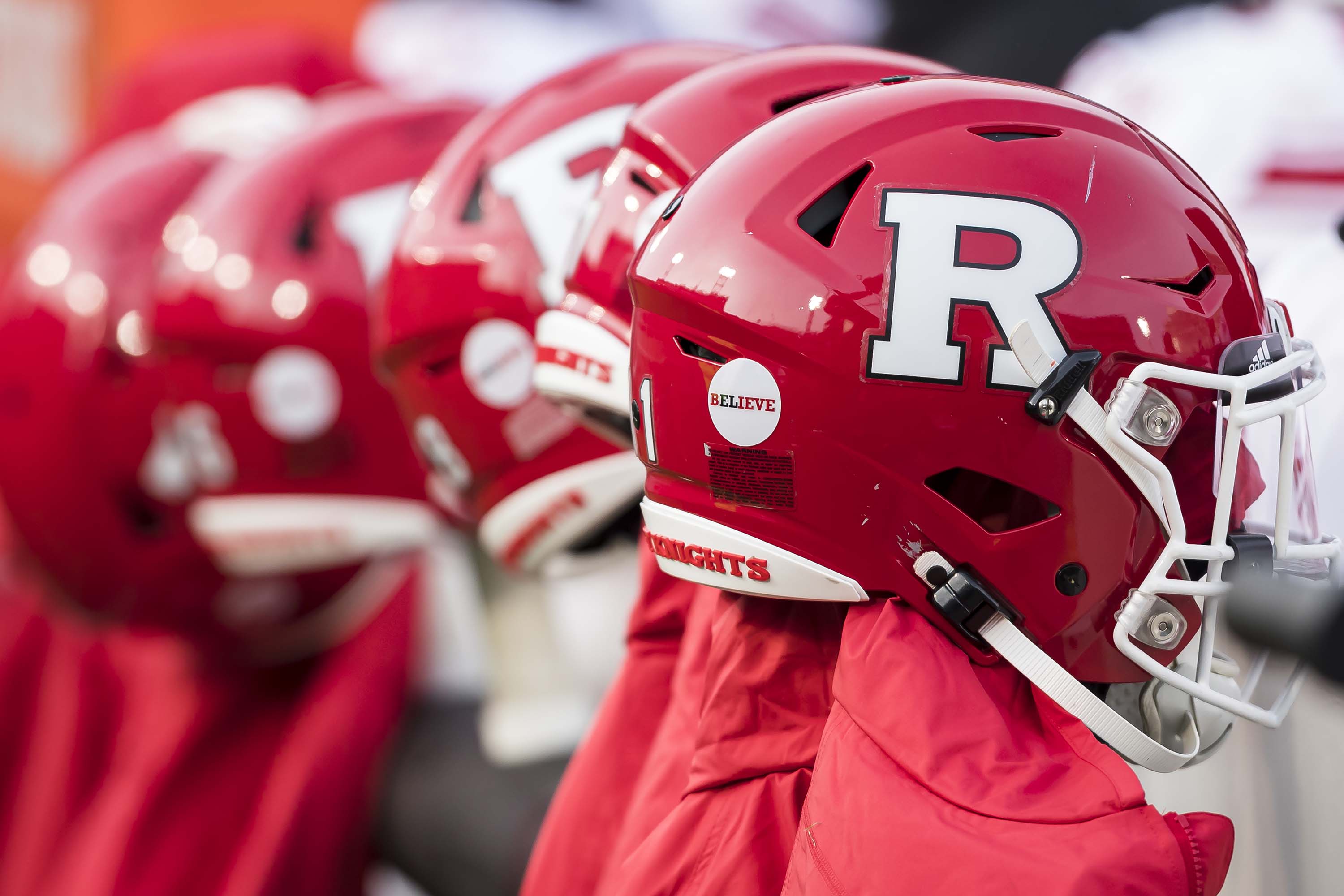 Rutgers Scarlet Knights equipment is seen before a game at Beaver Stadium in State College, Pennsylvania, in November 2019. Scott Taetsch/Getty Images
Rutgers Scarlet Knights equipment is seen before a game at Beaver Stadium in State College, Pennsylvania, in November 2019. Scott Taetsch/Getty ImagesAt least 15 Rutgers football players have tested positive for coronavirus after attending a gathering.
In a news conference yesterday, New Jersey State Health Commissioner Judith Persichilli said there had been "several circumstances where indoor and outdoor gatherings in our state have led to community clusters of Covid-19...”
Persichilli went on to say that “there’s been an outbreak among Rutgers football players with 15 of them currently testing positive.”
The number of players infected has climbed in recent days.
The university issued a statement on July 25, when the entire football team was quarantined.
Last week, New Jersey Gov. Phil Murphy issued an executive order that allowed outdoor sports activities to start up again in the state. He does not believe the Rutgers outbreak should affect that order.
“I don’t want to get out over my skis here but I believe that the incidents had nothing to do with athletic activity,” Murphy said earlier this week.
Hong Kong reports record daily virus count
From Vanesse Chan in Hong Kong
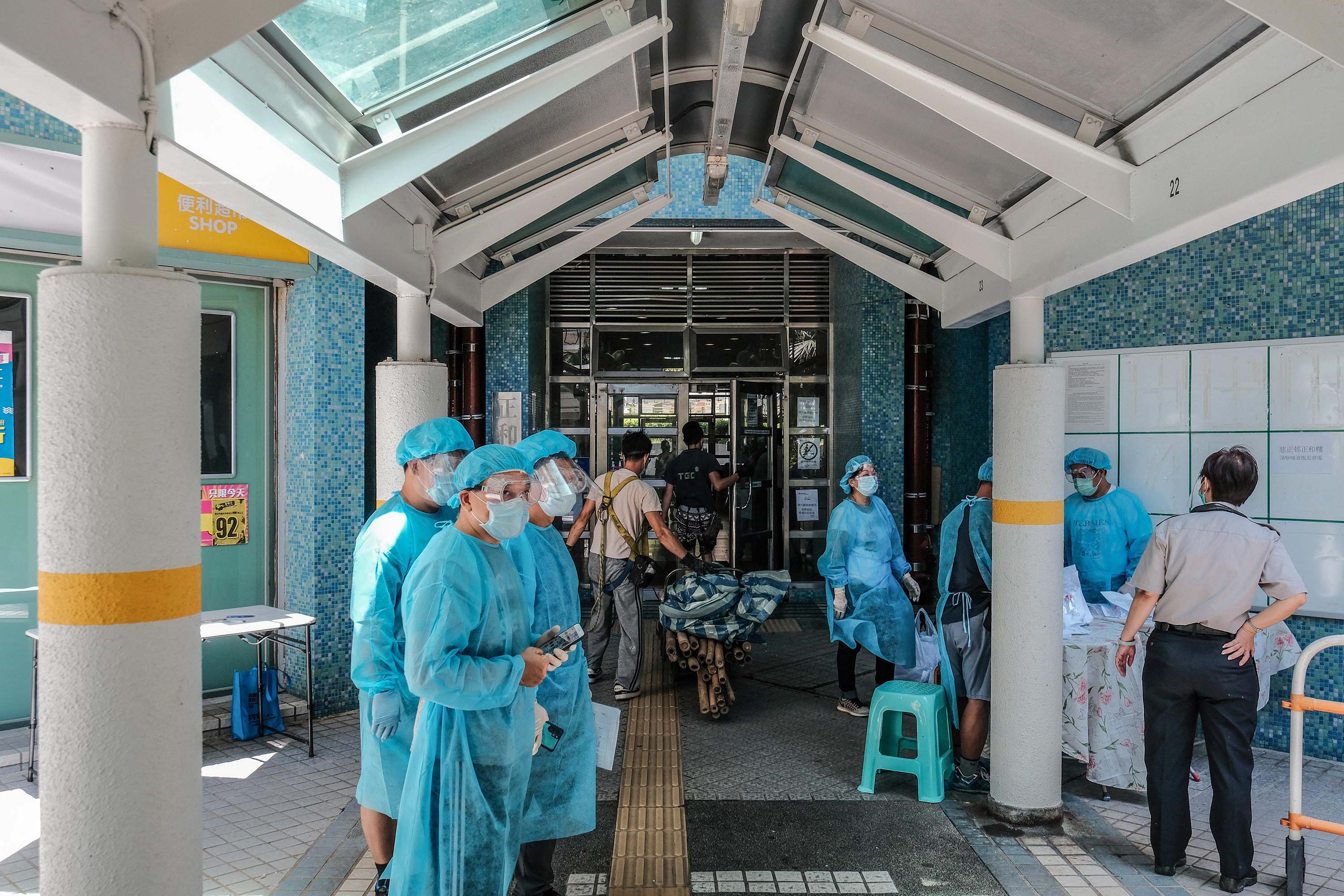 Medical workers hand out Covid-19 test kits to local residents at a residential block in Hong Kong on July 28. Qin Louyue/China News Service/Getty Images
Medical workers hand out Covid-19 test kits to local residents at a residential block in Hong Kong on July 28. Qin Louyue/China News Service/Getty ImagesHong Kong confirmed its highest daily record of new infections with 149 new Covid-19 cases Thursday, the ninth day of triple-digit cases for the city.
Of the additional infections, 145 are local cases and 61 come from unknown sources, according to a daily health briefing. Among the four imported cases, three were seafarers from India.
The government introduced its strictest social distancing measures yet on Wednesday, but partially lifted its dine-in ban during breakfast and lunch hours, stating that some people at work “cannot find a proper place to eat.” Establishments must operate at 50% capacity with only two people per table.
Background: Hong Kong had previously been praised for its relatively effective response to containing the coronavirus. The city's total number of infections stands at 3,152 with 24 deaths.
German economy has sharpest decline on record
From CNN’s Fred Pleitgen in Berlin
The German economy shrank by a record 10.1% in the second quarter as the full impact of the pandemic crisis hit Europe’s largest economy.
This is the largest quarterly decline since records began in 1970 and a bigger drop than the 2009 financial crisis, when the economy contracted 4.7% in one quarter.
According to the data from Germany’s National Statistics Office, a massive slump was recorded for exports and imports of goods and services as well as housing spending.
The numbers: Germany has recorded almost 209,000 cases and more than 9,000 deaths, according to Johns Hopkins University figures. The country's center for disease prevention, the Robert Koch Institute, reported that case numbers spiked on Friday and have been rising in recent weeks following the relaxation of lockdown measures.
Europe still hasn't won its battle against Covid-19, says Italy's Health Minister
From CNN's Valentina DiDonato in Rome and Schams Elwazer in London
Italy’s Health Minister warned on Thursday that Europe’s battle against coronavirus has not been won as the continent braces for a possible second wave with infection rates rising in several countries.
In a statement, Roberto Speranza said he was concerned by the “latest signals from France, Spain and Germany that still tell us the battle has not been won, not even in Europe,” adding that Italians need to act with “strength of prudence.”
Italy was the first European country to see a wave of coronavirus infections and its northern province of Lombardy was, for weeks, considered the European epicenter of the disease.
Cremona Hospital in Lombardy – one of the hospitals that was hardest hit at the peak of the crisis – tells CNN it is already being told to plan for the worst.
CNN visited Cremona Hospital in March 2020. Watch CNN international correspondent Melissa Bell's report:
Welcome to the NBA bubble -- at Disney World
From CNN's Don Riddell
For the next two-and-a-half months, the top basketball players in the US will all be residing at Disney World in Orlando, Florida.
But it's not necessarily the treat you might think; in fact some -- like the Lakers' LeBron James and the Trail Blazers' Damian Lillard -- have compared it to a prison sentence, both using slang on social media, saying they were off "to do a bid."
It's probably not the kind of gratitude the NBA was expecting when they wrestled with the biggest logistical challenge ever faced in the 74-year history of the league: how to resume and finish up a season amidst a global pandemic in a country which has struggled in the fight against Covid-19.
Certainly Philadelphia 76ers coach Brett Brown struck a more positive note.
I think what the NBA has done ... in the environment we are all in is spectacularly brilliant," Brown told reporters. "I think it's elite -- I have zero complaints about anything that might prohibit us from doing our job."
And according to UFC boss Dana White, the 'bubble' approach is currently the only way forward for US sports.
"This isn't going to work outside of a bubble," White told CNN Sport earlier this week after the UFC staged a series of bouts on Yas Island in Abu Dhabi.
So far the NBA's approach looks to be working. On Wednesday, the National Basketball Association (NBA) and players' union announced that none of the 344 players tested since July 20 had tested positive for the coronavirus.
Read the full story:
UK may extend Covid-19 self-isolation period amid Europe "second wave" concerns
From CNN's Sharon Braithwaite in London
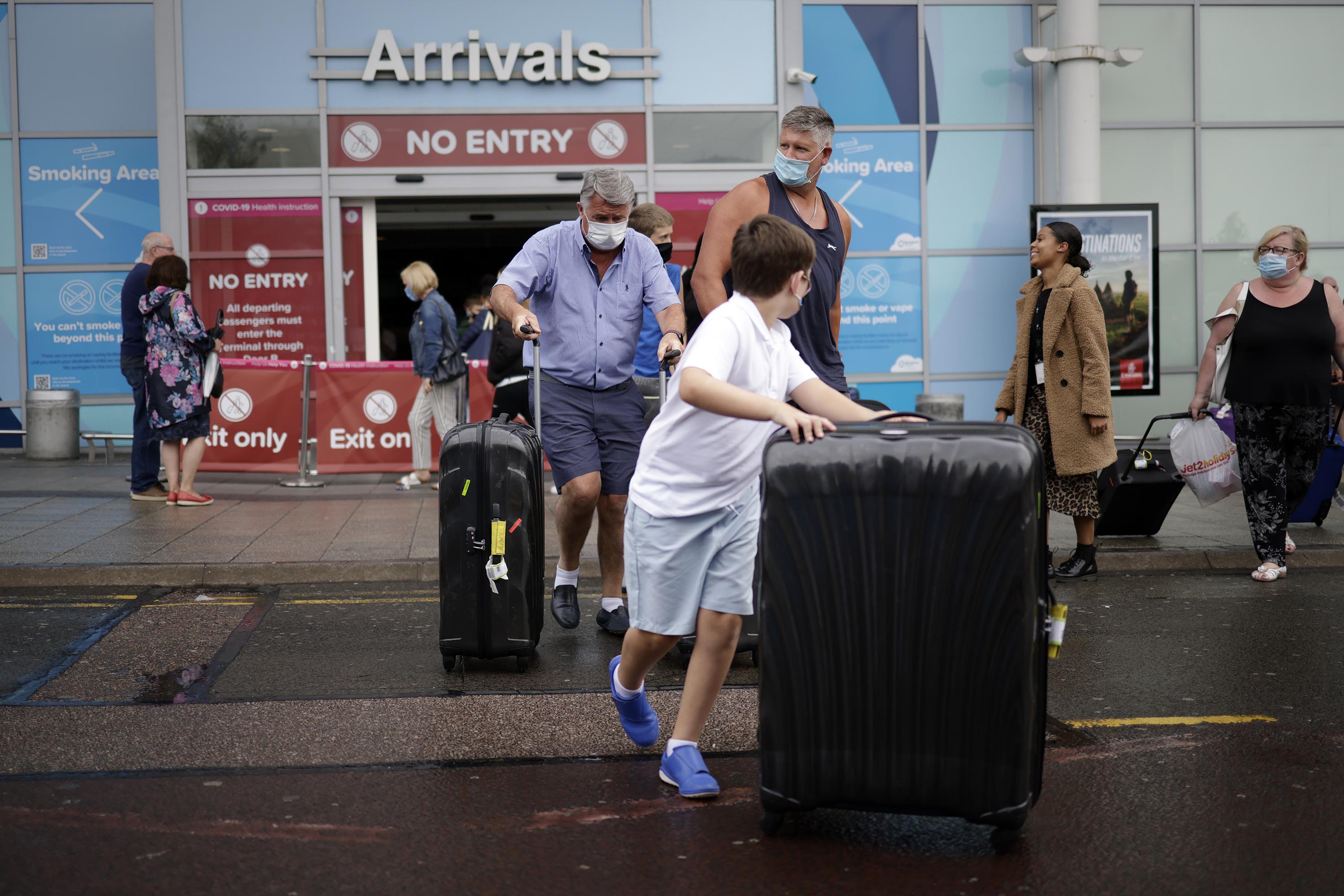 Travelers exit the arrivals terminal at Birmingham Airport on July 27, in Birmingham, England. Christopher Furlong/Getty Images
Travelers exit the arrivals terminal at Birmingham Airport on July 27, in Birmingham, England. Christopher Furlong/Getty ImagesThe UK is expected to extend the self-isolation period for people showing possible Covid-19 symptoms, as concerns grow over a second wave of infections in Europe.
Speaking to Sky News Thursday, UK Health Secretary Matt Hancock stopped short of confirming that the self-isolation period would be extended from seven to 10 days, but said the country’s Chief Medical Officer would be announcing details later in the day and that the decision was “clinically led.”
Second wave: Hancock said he is worried about a second wave in Europe and that the UK "won't hesitate to act" to boost quarantine measures if needed.
I think you can see a second wave starting to roll across Europe, and we've got to do everything we can to prevent it from reaching these shores, and to tackle it,” Hancock said.
He added that the UK government is keeping the quarantine rules “under review all of the time, and we are taking action and we will take action if it is needed to keep this country safe."
Quarantine testing: Hancock said the UK government is considering using testing to shorten the quarantine period imposed on travelers returning to England from countries such as Spain.
"We are working on whether by testing people during that quarantine it is safe to then be able to release them earlier. But we are not imminently making an announcement on it because that work is not concluded,” Hancock told the BBC.
Hancock also raised concerns about the risk of an increase of coronavirus cases in the UK. "Of course there's a danger of an increase and we've all seen what this virus can do and how fast it can move,” he told BBC radio, adding that new countries could be added to quarantine list in next few days.
It's just past 10:30 a.m. in Johannesburg and 5:30 p.m. in Tokyo. Here's the latest on the pandemic
Global coronavirus cases surpassed 17 million on Thursday, including more than 667,000 deaths, according to Johns Hopkins University.
Here's the latest headlines from around the globe:
We're only just beginning to learn how Covid-19 affects the brain
From Dr. Minali Nigam and CNN's Dr. Sanjay Gupta
One of the more puzzling aspects of the novel coronavirus is just how many organ systems are impacted through the course of the disease. We've heard about the heart, lungs and respiratory symptoms, but a growing mystery is its impact on the nervous system.
A report in April suggested more than a third of 214 Covid-19 patients studied experienced neurological complications ranging from loss of smell to stroke.
The virus can lead to neurological complications like delirium, brain inflammation, stroke and nerve damage. In a University College London study published earlier this month, 10 out of 43 patients had "temporary brain dysfunction" and delirium, while 12 had brain inflammation, eight had strokes and eight had nerve damage.
Another paper published last month in The Lancet Psychiatry looked at 153 patients in the UK and found even those younger than 60 could have psychosis, depression or strokes.
How this virus damages the brain and nerves still isn't totally clear. But as two physicians dedicated to the study of the nervous system, we wanted to find some answers.
Read the full story:

 5 years ago
662
5 years ago
662 
